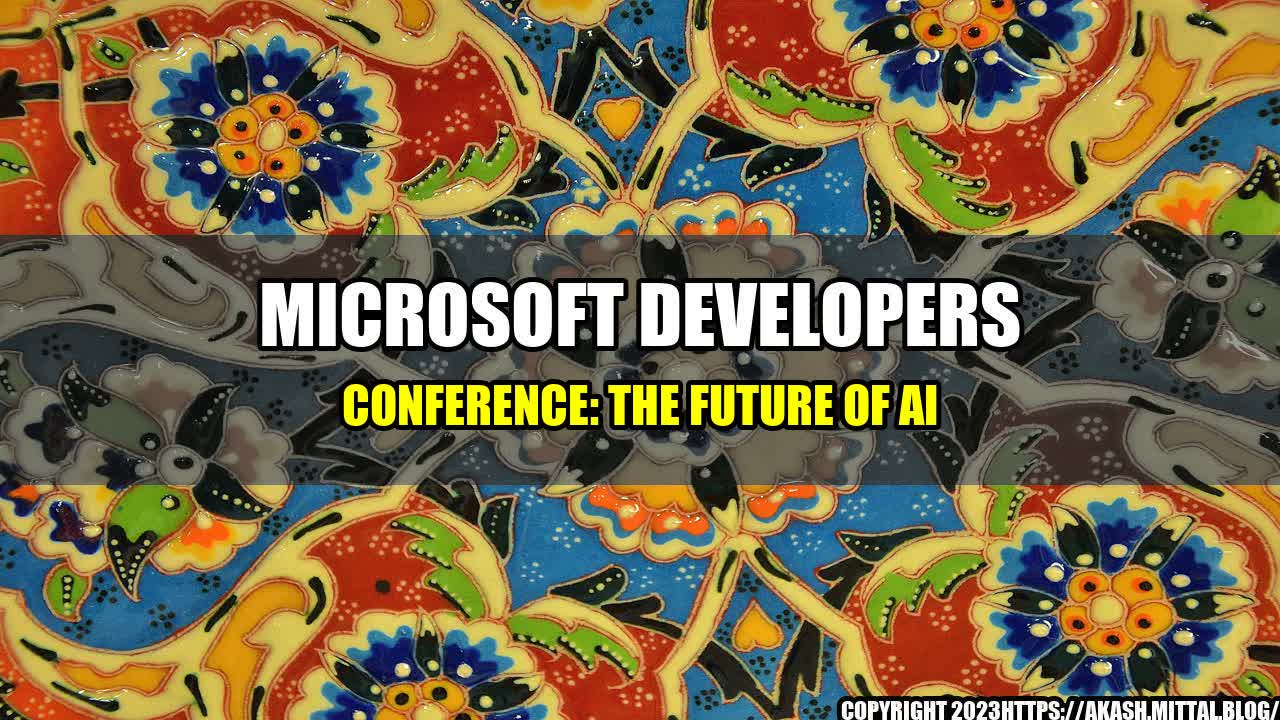Imagine waking up in the morning to a personalized playlist that perfectly matches your mood, followed by a virtual assistant who reminds you of your upcoming schedule, and then a fully-automated car that navigates through traffic while you catch up on some sleep. This might sound like a futuristic dream, but it's closer than you think, thanks to artificial intelligence (AI).
At the Microsoft Developers Conference in May 2021, the company made several exciting announcements about new updates and advancements in AI technology. Here are just a few quantifiable examples of what we can expect in the near future:
- Microsoft's new language model, called GPT-3, is capable of producing human-like responses to text-based inputs. After training on a large dataset of text, it can generate entire articles, chatbot conversations, and even computer code. It's nearly indistinguishable from a human writer.
- Azure Cognitive Services now includes a feature called Personalizer, which uses reinforcement learning to optimize content recommendations. It can learn from user behavior and feedback to present more relevant and engaging information, whether it's in a video streaming app or an e-commerce website.
- The Microsoft Power Platform now offers an AI Builder, allowing users to easily create and deploy custom models without any coding experience. For example, a business owner could train a model to predict which customers are most likely to churn, and then take proactive measures to retain them.
These are just a few of the many updates that Microsoft is bringing to the table when it comes to AI. But beyond the futuristic buzz, what do these developments mean for us as individuals and society as a whole?
The Benefits of AI
AI is often talked about in terms of its potential to revolutionize industries, automate tedious tasks, and increase efficiency. While these benefits are certainly worth exploring, there are also more tangible, human-centered advantages that AI can bring to the table.
Improved Personalization
As mentioned earlier, Personalizer is a prime example of how AI can improve the personalized experiences we have online. By better understanding our preferences and behaviors, this technology can help us discover new content that we're more likely to enjoy and engage with. This leads to a more satisfying user experience and a stronger sense of connection with the digital world.
Enhanced Accessibility
Another way that AI can benefit individuals is by increasing accessibility. For example, speech recognition technology can allow people with disabilities to communicate more easily and fluently. Similarly, computer vision algorithms can help those with impaired vision to navigate their surroundings more confidently. By making technology more inclusive, we're ensuring that everyone has an equal opportunity to participate in the digital age.
Greater Efficiency
Of course, it's hard to ignore the fact that AI can save us time and energy in our day-to-day lives. Whether it's automating repetitive tasks or streamlining decision-making processes, the technology can free up our mental bandwidth for more important and fulfilling activities. For businesses, this increased efficiency can lead to cost savings and a competitive advantage.
Concerns and Considerations
Despite the potential benefits of AI, there are also some legitimate concerns that we need to be aware of as we move forward with its development. Here are a few factors to keep in mind:
Ethics and Bias
One of the biggest concerns surrounding AI is the issue of ethics and bias. If we're not careful, we could create systems that perpetuate discrimination or reinforce harmful stereotypes. For example, if an AI model is trained on a dataset that is skewed in favor of one demographic over another, it could lead to unfair outcomes. It's important that we're intentional about the data we use and the algorithms we create in order to avoid these pitfalls.
Job Displacement
Another concern is the potential for AI to displace workers by automating jobs that were previously done by humans. While some experts argue that this will lead to new opportunities and industries, others worry about the impact on lower-skilled workers who may struggle to adapt to the changing job market. It's important that we consider the social and economic implications of AI as we move forward.
Data Privacy
Finally, there's the issue of data privacy. As AI becomes more integrated into our daily lives, there is a risk that our personal information could be misused or exploited. It's important that we have clear guidelines and regulations in place to protect individuals' privacy and security.
Conclusion
As we've seen, AI has tremendous potential to benefit individuals and society as a whole. From improved personalization to enhanced accessibility to greater efficiency, the technology has the power to transform the way we live and work.
However, it's important that we approach AI development with caution and consideration. We must be mindful of the ethics and bias that can arise, the potential for job displacement, and the need for privacy and security. By doing so, we can ensure that AI truly lives up to its promise.
In conclusion, here are three key takeaways from the recent Microsoft Developers Conference:
- The AI landscape is constantly evolving, with new technologies and applications emerging all the time.
- We must consider both the benefits and concerns of AI, and strive to develop it in a way that is ethical, inclusive, and secure.
- With the right approach, AI has the potential to improve countless aspects of our lives and reshape the world as we know it. The future is exciting – and with AI, it's looking brighter than ever.

Curated by Team Akash.Mittal.Blog
Share on Twitter Share on LinkedIn